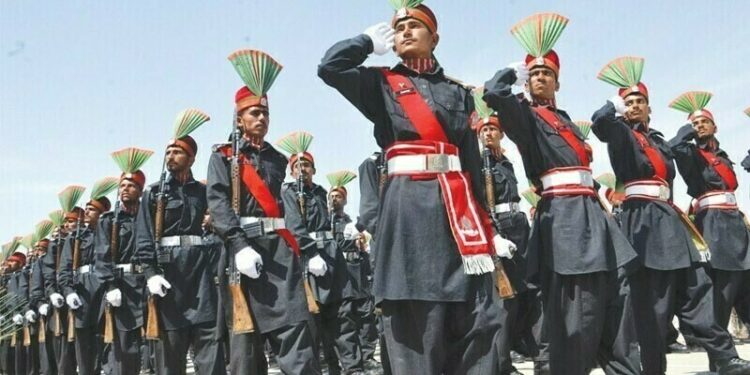Introduction: Presidential Ordinance Brings Major Shift in Internal Security Structure
In a landmark move to modernize and strengthen Pakistan’s internal security apparatus, President Asif Ali Zardari on Sunday promulgated the “Frontier Constabulary (Reorganization) Ordinance, 2025.” This ordinance formally transforms the Frontier Constabulary (FC) into the Federal Constabulary, a comprehensive federal force with expanded authority, scope, and jurisdiction across the country. The ordinance was issued with immediate effect, following the president’s satisfaction that urgent national security and administrative imperatives necessitated this transformation.
The Need for a Federalized Security Force
Originally created to maintain order in the border regions of Khyber Pakhtunkhwa (formerly the North-West Frontier Province), the Frontier Constabulary played a pivotal role in countering insurgency, criminal activity, and tribal conflicts. Over the years, the FC’s deployment expanded to various urban areas, including Karachi, Islamabad, and Gilgit-Baltistan, particularly for critical infrastructure protection like the China-Pakistan Economic Corridor (CPEC) and major hydroelectric dam sites.
However, changing dynamics in national security, coupled with increasing civil unrest, natural disasters, terrorism, and demands for VIP protection, underscored the need for a more flexible, multi-functional, and centrally governed force. The newly created Federal Constabulary aims to fulfill that role, becoming a vital reserve and support force for existing provincial and federal law enforcement agencies.
Legal Framework and Immediate Implementation
The ordinance comes into effect immediately, bypassing the need for parliamentary approval under the Constitution’s provision for urgent executive action. Since the National Assembly and Senate are not in session, President Zardari exercised his constitutional authority to enact the law without delay.
Soon after the ordinance was signed, the Ministry of Law and Justice issued an official notification, confirming the restructuring of the FC into the Federal Constabulary. This action grants the federal government complete legal authority to deploy the force nationwide for a wide range of law enforcement, public order, and security-related functions.
Organizational Structure of the Federal Constabulary
The restructured Federal Constabulary will be led by an Inspector General (IG), appointed directly by the federal government. Supporting the IG will be Additional Inspectors General, Deputy Inspectors General, Assistant Inspectors General, and other senior officers belonging to the Police Service of Pakistan (PSP).
The FC will consist of two major divisions:
- Security Division: This division will comprise existing personnel from the previous Frontier Constabulary. It will continue recruitment based on traditional methods and provide security services, law and order maintenance, and peacekeeping support.
- Federal Reserve Division: This newly formed division will be a specialized unit tasked with riot control, special protection duties, and emergency responses. It will operate under the powers granted by existing laws such as the Code of Criminal Procedure, 1898, Anti-Terrorism Act, 1997, and the Police Order, 2002.
Each division will be further subdivided into Wings, Companies, and Platoons, commanded by officers with ranks ranging from Superintendent of Police (SP) to Assistant Sub-Inspector (ASI). These ranks ensure a hierarchical command structure with operational efficiency and effective oversight.
Mandate and Powers Under the New Ordinance
Under the new ordinance, the Federal Constabulary will act as a reserve force, available for deployment across Pakistan in support of the Islamabad Police, provincial police forces, and other federal or provincial law enforcement bodies. It will be entrusted with key responsibilities including:
- Crowd and riot control during protests and political gatherings
- Protection of VIPs and public officials under ‘escort protection’ protocols
- Emergency response during natural disasters or civil unrest
- Security reinforcement in terrorism-prone or conflict-affected areas
- Surveillance and protection of sensitive installations and infrastructure
The ordinance also explicitly authorizes the Federal Government to delegate any power or responsibility vested in police officers to members of the Federal Constabulary. This ensures operational flexibility and nationwide reach.
Transition of Assets, Personnel, and Legal Framework
All personnel, assets, and liabilities of the former Frontier Constabulary will be transferred to the new Federal Constabulary. This includes infrastructure, equipment, operational funds, and administrative properties located across various provinces. The transition will take place seamlessly, ensuring continuity of service and command.
Additionally, all serving officers and employees will retain their existing terms and conditions, ranks, and benefits. Their legal status will now be under the purview of the new ordinance, providing them broader jurisdiction and official recognition.
Moreover, all existing rules, regulations, notifications, and directives issued under the Frontier Constabulary Act of 1915 will remain in effect—unless found inconsistent with the provisions of the new 2025 ordinance. This guarantees legal continuity during the transition period.
Implications for National and Regional Security
The elevation of the FC into a federal force is expected to significantly strengthen Pakistan’s internal security matrix. With centralized command, trained personnel, and wide-ranging powers, the Federal Constabulary will serve as a crucial bridge between the civil police and military forces.
Security experts argue that this transformation could help reduce overreliance on military deployments in civilian areas, by providing a trained, empowered alternative capable of maintaining law and order. The force’s flexible deployment model will allow it to plug security gaps in sensitive areas, manage urban unrest, and respond swiftly to emerging threats.
Concerns Over Misuse and Oversight
Despite the strategic advantages, civil society activists and legal experts have raised concerns about the potential misuse of the newly formed Federal Constabulary, particularly regarding its expanded authority in VIP protection and riot control. Critics argue that past deployments of the FC for elite escort duties were widely criticized, and the new ordinance may further institutionalize such practices.
There are calls for the establishment of robust oversight mechanisms, including independent audits, parliamentary reviews, and internal accountability protocols to ensure the force remains focused on public service and not political protectionism.
Conclusion: A Transformative Shift in Policing and Public Safety
The establishment of the Federal Constabulary through the Frontier Constabulary (Reorganization) Ordinance, 2025, marks a significant milestone in Pakistan’s efforts to modernize its internal security framework. With expanded powers, an upgraded structure, and a clear mandate, the new force is poised to play a vital role in maintaining peace and stability across the country.
As the government begins implementation, careful attention must be paid to balancing security imperatives with democratic accountability to ensure that the Federal Constabulary serves the people of Pakistan effectively, transparently, and in line with constitutional principles.

























